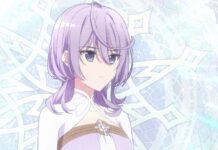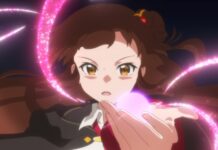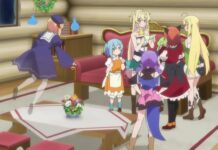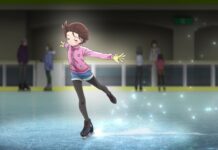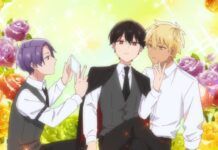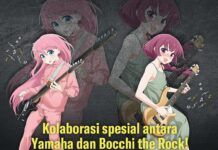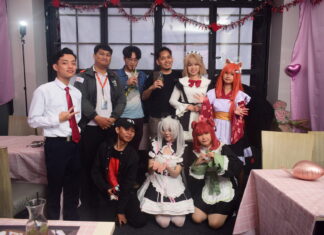Synopsis
Hitori “Bocchi-chan” (“Loner”) Gotō is a lonely high school girl whose heart lies in her guitar. She does nothing every day except strum her guitar by herself at home. However, she happens one day to meet Nijika Ijichi, who is looking for a guitarist for her group named “Kessoku Band.” (Source: ANN)
Comments
Vina Nurziani (The Indonesian Anime Times)
The first episode of Bocchi The Rock left me with the impression of how distorted Hitori’s life is in her head. Started with the depiction of her personality in her prologue scene when she watched her friends making a group to play and her thought was, “do I deserve to join them?”. Her way of saying her thoughts in that scene is by saying “私何か” (watashi nanka) indicates how low her self-esteem is, which leads to the tendency to overthink the situation. This low self-esteem, along with her inability to socialize, influenced how she sees herself as a gloomy and introverted person.
Moving from childhood to adolescence, she started her developmental task of building her identity. She wants to know what kind of person she wants to be (by wondering if “this is the life she wanted to lead”). Thus she identifies herself as such and then evaluates by comparing her actual self with an ideal self, which in this case is other people who are able to socialize. The next thought process of her realizing the gap between her actual self and her ideal self is identifying what is it that she’s lacking, but she has yet to find the solution to fix the problem.
Hitori’s self-focused attention narratives which were brought negatively because she only focused on her flaws, began to change when she empathizes with someone who has a similar condition to her. Finding someone similar to her (according to her interpretation) becomes popular by forming a band (according to her assumption), accompanied by the knowledge that her father has a guitar, she is finally able to see the light in the dark abyss. She finds her ideal self of being popular (and having friends) through music and trains like crazy. Eventually, she becomes good at playing the guitar. So, the next step is looking for a friend who also loves music, right?
But here comes her problem: she only practices her guitar, but not socializing. The internet might be the way for her, but it didn’t fill the gap between her actual self and her ideal self. She tried her best to present herself as a music lover so people talk to her at school. It didn’t work. The good news is, the extroverted Nijika came and adopted her into the band. The bad news? This new social interaction and environment deepen the contrast between herself and the world around her. Hitori’s self-focused attention evolved into relatively black-and-white thoughts in an intense way.
I like the series’ tonal dynamics could easily change depending on the situation. There’s a war inside Hitori’s head, a war between her critically negative thoughts of her actual self and her naively positive thoughts about the ideal self she aspires to. All while Hitori is having a trip back and forth between the outside world and her inner thoughts, I’d like to emphasize the narrative shifting of Hitori’s inner thoughts influenced by the outside world. In both episodes, Hitori’s inner thoughts are all about herself and she tends to self-focusing negatively, but as she interacts with other people her thoughts change from focusing on herself to appreciating other people’s presence. The symbol of the stairs at the end of episode 2 could be interpreted as her progress in changing behaviour and a journey to find her ideal self. In the end, for you to not assume and overthink yourself, this anime reminds you. To. Touch. Grass.
Facts and Figures
| Alternate title(s) | ぼっち・ざ・ろっく! |
| Source material | 4-panel manga by Hamaki Aji |
| Casts | Aoyama Hoshino as Gotou Hitori Mizuno Saku as Yamada Ryou Suzushiro Sayumi as Ichiji Nijika Hasegawa Ikumi as Kita Ikuyo |
| Director | Saitou Keiichirou |
| Scenario | Yoshida Erika (Tiger Bunny) |
| Character design | Rikuta Kiyoki |
| Opening theme | “Seishun Complex (青春コンプレックス)” by Kessoku Band (結束バンド) |
| Ending theme | “Distortion!!” by Kessoku Band (結束バンド) |
| Studio | CloverWorks |
| Official site | https://bocchi.rocks/ |
| @BTR_anime | |
| Broadcast date | 8 October 2022 (1500 JST, 2200 WIT), 9 October 2022 (0000 JST) |
Screenshots and Trailer


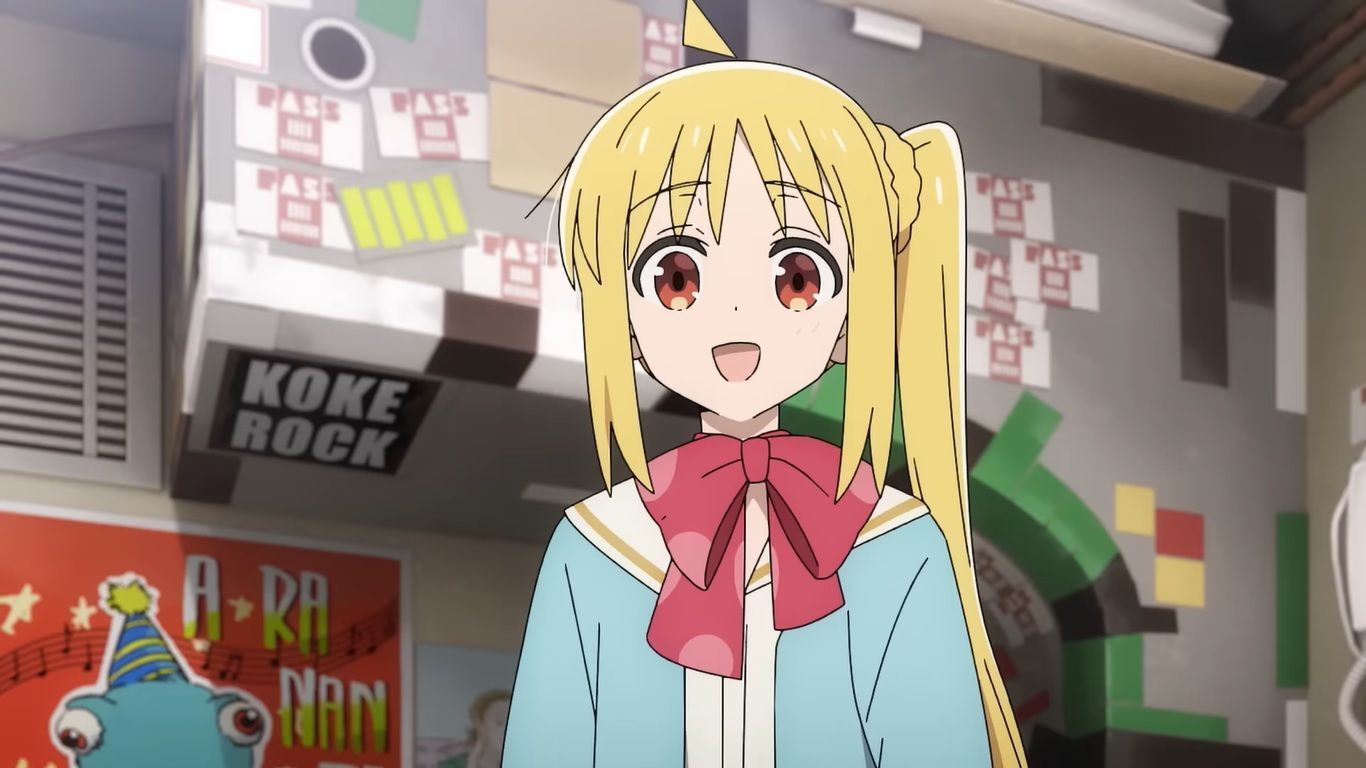
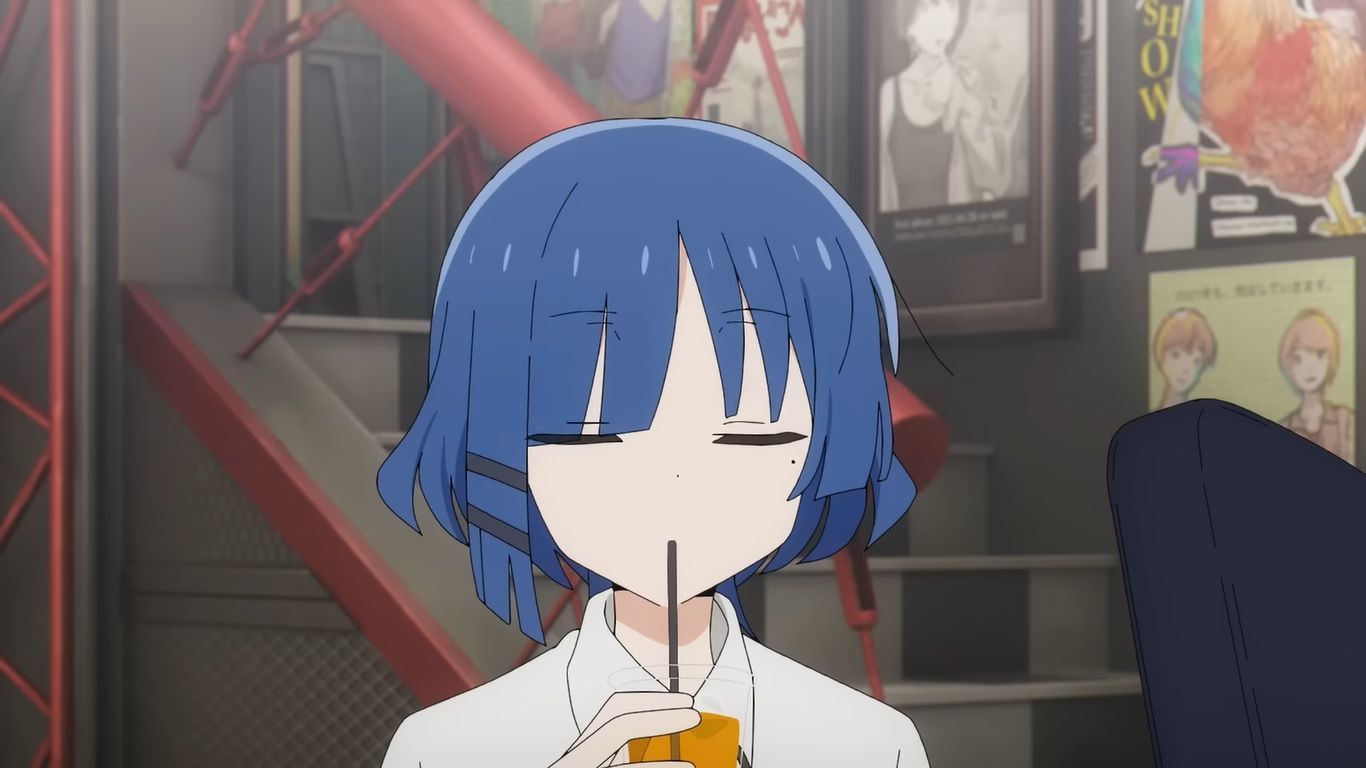
The Indonesian Anime Times


